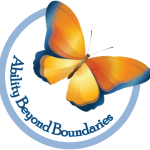The Royal Commission into Violence, Abuse, Neglect and Exploitation of People with Disability (The Royal Commission) was established on April 2019 to cross-examine and address the violence, abuse and neglect of people with disability and to enable people with disability to know their rights and tell their stories and experiences. The experience of violence, abuse and neglect can be in all settings and contexts such as the home, school, workplaces, mental health facilities, out-of-home care, or in the disability support system.
The Royal Commission applies to all people with disability and everyone who experiences disability, of all ages is encouraged to tell their stories to the Royal Commission.

You can contribute to the Royal Commission through making your submission. For more information visit the link below:
https://disability.royalcommission.gov.au/submissions/Pages/default.aspxPeople who have been engaged with or affected by the Disability Royal Commission, can find useful information on how to find free and independent counselling and advocacy support through:
https://www.dss.gov.au/disability-and-carers/disability-royal-commission-support-servicesRoyal Commission) will run for three years until 2022 and has released its first Progress Report. The paper is available in
https://disability.royalcommission.gov.au/publications/Pages/default.aspxGeneral information about violence, abuse, neglect and exploitation
Research shows that in many occasions:
- The perpetrator is known to the victim including but not limited to their family members, carers or service providers.
- In some cases, treatment services are either inadequate or in some locations do not exist.
- In addition to experiencing violence, sexual and financial abuse, in some occasions, people with disability are mistreated by withholding their needed medication, equipment such as braces or wheelchair, transportation, or essential assistance with personal care like showering, dressing or supplying food.
- With having different types of disabilities, people may experience different dynamics of abuse. For example, for people with physical or visual disabilities, limitations in physically escaping abuse and violent situations are dissimilar to people with hearing impairment or intellectual disabilities, who may be able to escape but face communication barriers in many settings.
- There are common experiences such as “economic dependence”, “social isolation”, and lower self-esteem, often on the basis of disability, which are precursors to abuse across all of the disability groups.

